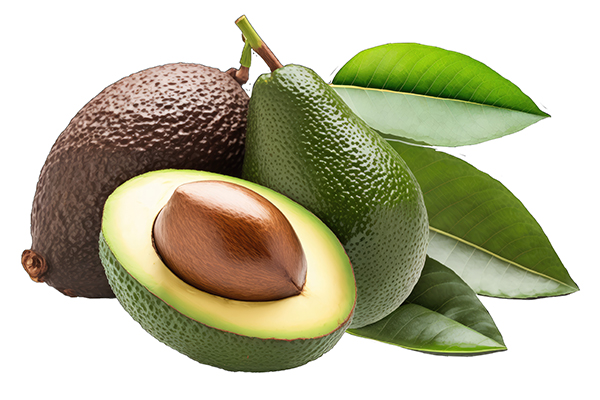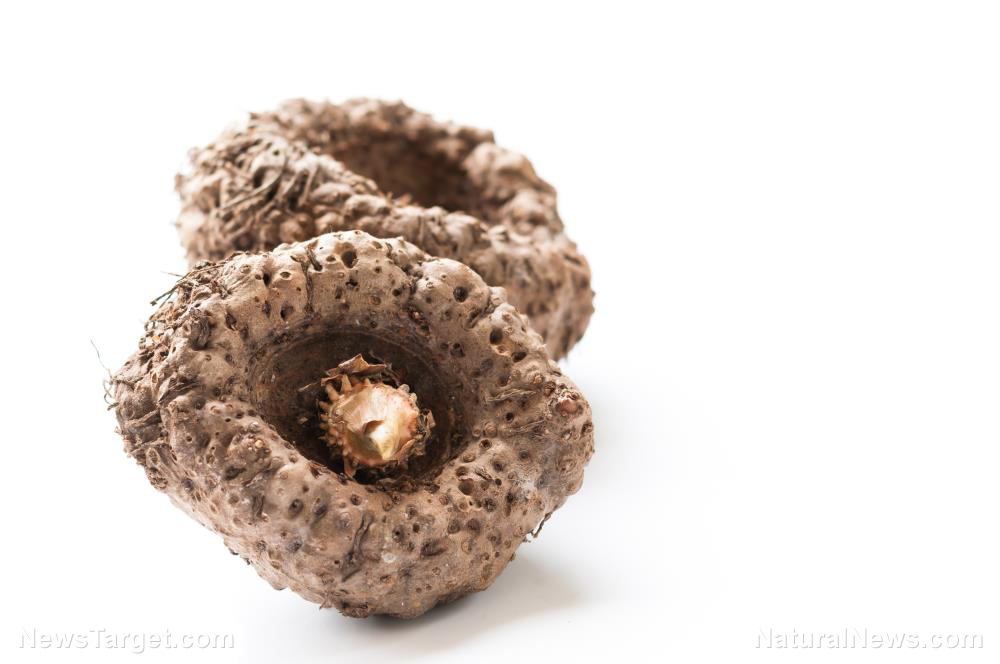STUDY: Compound in coffee and tea can prevent liver cancer cells from spreading
09/15/2023 / By Evangelyn Rodriguez

Plants produce a wide variety of chemicals to ensure their survival. Many of these compounds happen to be beneficial to humans because of their outstanding biological properties.
For example, plants naturally produce ascorbic acid – also known as vitamin C – because it plays an important role in photosynthesis and is needed for controlling plant cell growth. Vitamin C is an essential nutrient for humans that supports immune function and helps maintain healthy skin, bones, cartilage and blood vessels.
Plants also produce flavonoids as part of their defense mechanism against environmental stressors. When consumed, these phenolic compounds act as potent antioxidants inside the human body and help protect against oxidative stress by neutralizing free radicals.
Because of these beneficial components, people derive a wealth of health benefits from eating plant-based foods.
Coffee and tea contain an anticancer compound
Since the late 1990s, researchers have been studying the anticancer benefits of different plant-based foods, specifically fruits, vegetables, whole grains and legumes. They found that cruciferous vegetables, in particular, are a rich source of sulfur-containing chemicals that are transformed by the human body into cancer-fighting agents. Clinical studies have shown that a high intake of these compounds can reduce the risk of different types of cancer.
Cruciferous vegetables are not the only cancer-fighting foods in the human diet. Recent studies suggest that coffee and tea, two of the most consumed beverages in the world after water, also contain an active compound that can disrupt the progression of cancer in various ways. This chemical, known as chlorogenic acid, is not only a powerful antioxidant but is also one of the major components that strongly influences the taste of coffee and tea.
In a recent study published in the journal Frontiers in Pharmacology, Chinese researchers investigated the anticancer activities of chlorogenic acid. A polyphenol with known anti-inflammatory, antioxidant and antiviral properties, chlorogenic acid has been reported by previous studies to suppress the invasion and metastasis of hepatocellular carcinoma (HCC) cells.
HCC is the most common form of primary liver cancer in adults and is said to be responsible for more than 12,000 deaths in the U.S. per year. HCC occurs as a malignant tumor that expands into nearby environments, invading surrounding tissue. But what makes this tumor truly dangerous is the fact that it can metastasize, meaning tumor cells can break away from the primary tumor and migrate to a new location, allowing the cancer to spread.
Because metastatic cancers are hard to stop, one of the main focuses of ongoing cancer research is to find ways to kill or suppress the growth of primary tumors and metastatic cancer cells. Multiple studies have reported that chlorogenic acid is a promising candidate for achieving this, having shown exceptional anticancer activities which include inhibiting cancer cell cycle progression, inducing apoptosis (programmed cell death) and suppressing cancer cell proliferation.
Chlorogenic acid targets the malignant characteristics of HCC
For their study, the Chinese researchers examined the effects of chlorogenic acid treatment on cultured human HCC cells and mice injected with the same cancer cells. One of the things they focused on was how chlorogenic acid affected the expression of DNA methyltransferase 1 (DNMT1), the major enzyme responsible for maintaining the methylation patterns of DNA following replication.
According to a study published in the journal Medical Science Monitor, human cancers consistently show alterations in the methylation patterns of tumor suppressor genes. The study further revealed that overexpression of DNMT1 is a common feature of invasive tumors, which suggests that it could be associated with the aggressive behavior of certain cancers.
The Chinese researchers found that in both HCC cell cultures and tumor-injected mice, chlorogenic acid treatment suppressed the expression of DNMT1, which significantly enhanced the activities of two tumor suppressor proteins, namely, p53 and p21. The upregulation of these tumor suppressors, in turn, led to the inhibition of HCC cell proliferation, invasion and metastasis. (Related: Prevent cancer with chlorogenic acid-rich foods and supplements.)
In addition, the researchers reported that chlorogenic acid inactivated ERK1/2, which has been described as “one of the most commonly dysregulated [signaling] pathways in human cancers.” Because of its role in cancer metastasis, the ERK1/2 pathway has become a viable target of conventional cancer treatments, with several inhibitors already approved by the Food and Drug Administration since 2011.
Chlorogenic acid also reduced the expression of two metalloproteinases, namely MMP-2 and MMP-9. Both of these enzymes are known for their roles in collagen degradation. High levels of MMP-2 have been detected in malignant tumors, while MMP-9 has been found to be involved in tumor invasion, metastasis and angiogenesis (new blood vessel formation).
Taken together, these findings show that chlorogenic acid is a powerful anticancer agent that can stop aggressive liver cancer cells from invading surrounding tissue and spreading to other parts of the body. This also means that a diet rich in food sources of chlorogenic acid will greatly benefit liver cancer patients and should be included in their treatment to increase their chance of survival.
Other benefits of chlorogenic acid
Chlorogenic acid can be found in many plants, fruits and vegetables. Chemical analysis suggests that it is present in high concentrations in coffee, and you can get as much as 70 to 350 milligrams (mg) of chlorogenic acid per cup. Among coffee bean varieties, green coffee beans — the raw, unroasted kind — are said to be the most abundant source of chlorogenic acid. (Related: Study: Green coffee bean extract can help people lose weight.)
One of the most widely distributed phenolic acids in plants, chlorogenic acid can also be found in different tea varieties, particularly green and black tea. According to a study published in the Journal of Agricultural and Food Chemistry, the amount of chlorogenic acid in green tea ranges from 0.01 to 0.40 mg per gram of tea leaves. Another study reported that some Kenyan tea cultivars, which are mostly black tea, contain between 4.2 to 22 mg of chlorogenic acid per gram of tea leaves.
Other foods that you can add to your diet to increase your intake of chlorogenic acid include apples, artichoke, burdock root, carrots, eggplants, grapes, kiwi fruit, pears, plums, potatoes and tomatoes. Some medicinal herbs, such as betel, eucommia, honeysuckle and wormwood, also contain considerable amounts of chlorogenic acid.
As one of the most extensively studied phytonutrients in foods, chlorogenic acid’s beneficial properties are supported by decades worth of research. Besides its anticancer properties, chlorogenic acid has also been found to possess high antiviral, antidiabetic, antioxidant and neuroprotective potential. According to a study by Chinese researchers, chlorogenic acid is an effective natural antiviral against the hepatitis B virus.
Meanwhile, another study found that chlorogenic acid can slow the absorption of glucose in the intestine, suggesting that it can support healthy glucose metabolism and prevent blood sugar spikes after meals. Chlorogenic acid has also been shown to exert antioxidant and anti-aging effects by promoting the proliferation of healthy cells, protecting against lipid peroxidation and accelerating wound healing.
Chlorogenic acid is a remarkable compound with plenty of health-supporting properties. Learn about other beneficial compounds like chlorogenic acid at Phytonutrients.news.
Watch this video to learn about how vitamin D supplementation benefits cancer patients.
This video is from the Medicine Science Society channel on Brighteon.com.
More related studies:
Coffee contains hundreds of medicinal compounds that may prevent cognitive decline.
Drinking coffee can help reduce your risk of depression, according to studies.
Study: Eating BROCCOLI can protect against LIVER CANCER and fatty liver.
Study: A sugary drink a day could increase your risks of chronic liver disease and liver cancer.
Study: Supplementing with vitamin D helps prevent cancer, especially if it’s taken more frequently.
Sources include:
MicrobiomeJournal.BiomedCentral.com
Submit a correction >>
Tagged Under:
alternative medicine, anticancer, black tea, Chlorogenic acid, coffee, food cures, food is medicine, food science, functional food, Green tea, health science, herbal medicine, Herbs, Liver cancer, liver health, metastasis, natural cures, natural health, natural medicine, Oncology, phytonutrients, prevention, remedies, research
This article may contain statements that reflect the opinion of the author
RECENT NEWS & ARTICLES
COPYRIGHT © 2017 REMEDIES NEWS




















